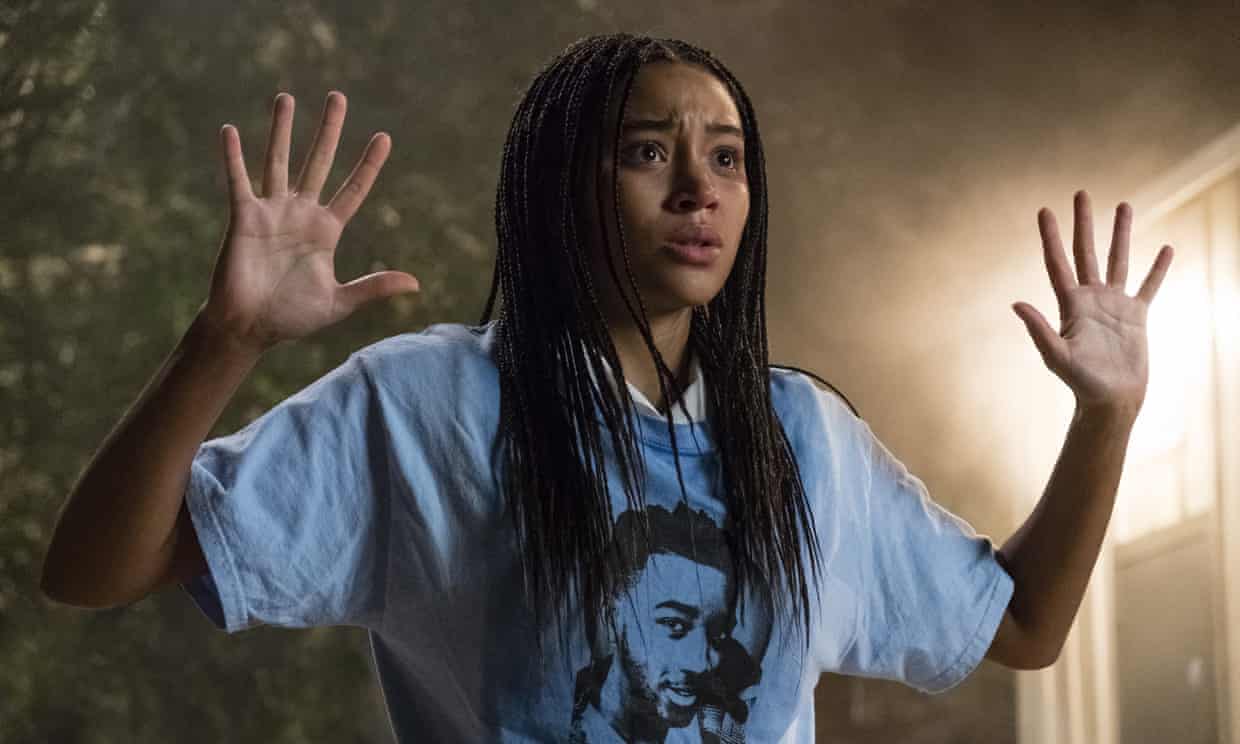The Hate U Give’s Amandla Stenberg on bringing Black Lives Matter to the box office |
The Hate U Give’s Amandla Stenberg on bringing Black Lives Matter to the box office
The Guardian
2018-10-19
Stenberg is the star of a new adaptation of the YA novel phenomenon. The actor, and the film’s director, discuss cinema’s new generation of resistance
Any resemblance between The Hate U Give and your average teen movie evaporates about 20 minutes in, when 16-year-old Starr Carter, played by Amandla Stenberg, witnesses a police officer shoot dead her friend Khalil at point-blank range. By this stage, Starr’s father has already given her The Talk, the time-honoured ritual where African-American parents instruct their children how to behave if stopped by the police: be polite, stay calm, put your hands where they can see them. When their car is pulled over, Starr follows the drill. Khalil reaches for a hairbrush. The police officer thinks it’s a gun. That’s all it takes.
The Hate U Give is fictional, but barely. To see the stricken expression on Stenberg’s face during the shooting scene is to recall Diamond Reynolds, partner of Philando Castile, who livestreamed the aftermath of Castile’s 2016 police shooting from the passenger seat while he bled to death beside her. The victims’ names have almost become a mantra: Castile, Freddie Gray, Oscar Grant, Trayvon Martin, Tamir Rice, Eric Garner, Sandra Bland – all young African Americans killed by law enforcement, each an avoidable tragedy.
“I learned really early on what it feels like to be black in an environment in which no one looks like you,” she says, “And I learned how to be very intentional of how I presented myself in order to fit in.” Code-switching – that capacity to alter your behaviour according to the company you’re in – is something that people of colour are especially familiar with, she continues. “Because you have the cognisance that if you are completely transparent about who you are in a space that doesn’t accept you for who you are, it’ll be detrimental to your ability to succeed. That’s just a fact of growing up in a country that is still based on white institutions,” she says. It can work both ways, Stenberg points out: her mother is African American and her father is Danish. “He was one of the only white people in our neighbourhood, so what I was experiencing at school, he was experiencing at home.”…
Read the entire article here.
Tags: Amandla Stenberg, Steve Rose, The Guardian